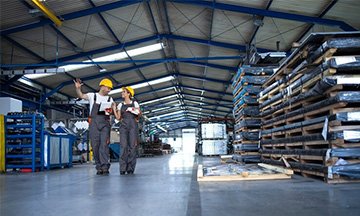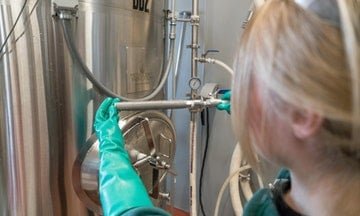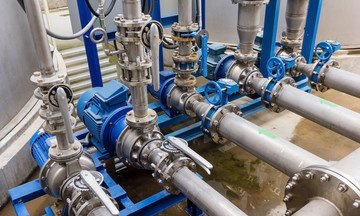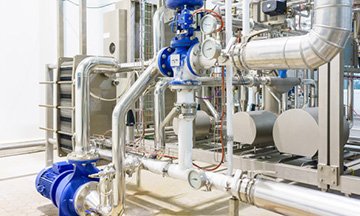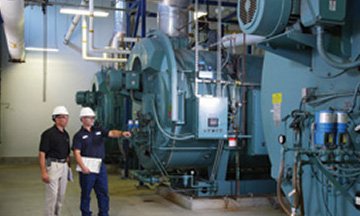Process Operator Training Course
| Date | Format | Duration | Fees | |
|---|---|---|---|---|
| 29 Apr - 10 May, 2024 | Live Online | 10 Days | $4495 | Register |
| 03 Jun - 14 Jun, 2024 | Live Online | 10 Days | $4495 | Register |
| 01 Jul - 12 Jul, 2024 | Live Online | 10 Days | $4495 | Register |
| 02 Sep - 10 Sep, 2024 | Live Online | 7 Days | $3147 | Register |
| 11 Nov - 15 Nov, 2024 | Live Online | 5 Days | $2250 | Register |
| 02 Dec - 13 Dec, 2024 | Live Online | 10 Days | $4495 | Register |
| Date | Venue | Duration | Fees | |
|---|---|---|---|---|
| 20 May - 31 May, 2024 | Singapore | 10 Days | $9850 | Register |
| 17 Jun - 28 Jun, 2024 | Singapore | 10 Days | $9850 | Register |
| 22 Jul - 02 Aug, 2024 | London | 10 Days | $9850 | Register |
| 16 Sep - 27 Sep, 2024 | Cairo | 10 Days | $9150 | Register |
| 25 Nov - 29 Nov, 2024 | Singapore | 5 Days | $5695 | Register |
| 16 Dec - 27 Dec, 2024 | Kampala | 10 Days | $9150 | Register |
Course Overview
What does a process operator do?
The role of a Process Plant Operator can be challenging, but it can also be a rewarding and stable career as this role is required in many different industries. You will find out much more, as you peruse this course outline.
What are the benefits of working as a process technician?
As a Process Plant Operators, individuals have a wide variety of career choices in sectors like oil and gas, power plants, chemical industries, oil refineries, water treatment plants, petrochemicals, fertilizers, cement, F&B, liquified natural gas, pharmaceuticals, and many other such industries. Because there are intrinsic dangers and complications within process facilities, companies must verify that employees have the knowledge to carry out their duties safely and efficiently. This course will discuss the role of process plant operators to sustain optimum levels of efficiency while maintaining consistently safe and reliable operational procedures.
Why is this “Certified Process Operator” training program crucial for effective process plant management? If you are considering a career as a process plant operator you need to be aware of the key aspects of this role and the work environment making your decision. This course will help you to identify and understand all the key areas of the tasks involved in the process plant operations and production environment.
This Zoe training course will provide you with a comprehensive view of the main roles and responsibilities of a plant operator, the usual key sets of skills you need, and the knowledge you need to hold to be a proficient plant operator.
Course Objectives
Following the completion of this Certified Process Operator training program effectively, delegates will be able to:
- Define the production plant and production systems
- Identify the different types of production organisations and future opportunities
- Learn operational organisation structures and plant layouts
- Understand the roles and responsibilities of process plant operations staff
- Obtain a deep understanding of a process plant operator’s lifestyle
- Discuss the process plant operator’s roles and responsibilities
- Attain the required skills and knowledge for a competent plant operator
- Learn the importance of safety awareness in process plant operation
Training Methodology
This collaborative Certified Process Operator training program will comprise the following training methods:
- Lectures
- Video demonstrations
- Quizzes & Evaluations
- Seminars & Presentations
- Group Discussions
- Assignments
- Case Studies & Functional Exercises
Like all our other training programs, this course also follows the ‘Do-Review-Learn-Apply’ model.
Organisational Benefits
Companies who nominate their employees to participate in this Certified Process Operator training program can benefit in the following ways:
- Benefit from training your employees on the definition and importance of mechanical information, along with the different roles played within the Certified Process Operator guidelines
- Learn and apply standards in equipment identification, equipment design features analysis, equipment performance calculations, safe operation and monitoring of equipment, and equipment maintenance
- Delegates will be able to apply the gained knowledge through this course and practice skills and that will impact their respective companies
- Maintain better organisational safety records
Personal Benefits
Individuals who choose to participate in this Certified Process Operator training program can benefit from the course in the following ways:
- Improve your career opportunities and increase your ability to work across worldwide industries like oil and gas, automobile, production, construction, aeronautics, etc.
- Secure a relevant job anywhere in the world with the right knowledge as a Certified Process Operator
- Get promoted in your current job in the Certified Process Operator field
- Acquire the professional skills and knowledge required to accomplish your tasks with optimal competence and accuracy
- Master the knowledge and techniques to see the future of an effective Process Operating process
- Discover how to work well with your machines and the risks of not being able to operate them accurately
- Contribute to your organisation by being knowledgeable enough to determine the need for a program/process at your workplace
- Being able to understand an existing program better
- Get an opportunity to work through hands-on exercises in detail to gain the skills needed to facilitate a Certified Process Operation stud
- Gain the skills to plan, manage, facilitate and scribe for a Process Operating project
Who Should Attend?
This Certified Process Operator training program would be suitable for:
- Process operators involved in the chemical, hydrocarbons, and refining industries
- Process plant technical professionals
- Engineers, technicians, and operators
- Supervisors and maintenance personnel
- Project engineers
- Engineering and technical personnel responsible for improving process and petrochemical plant, and refinery profitability
- Those who are involved in planning, managing and ensuring energy efficiency
Course Outline
Module 1: Overview of Process Plant Operation
- What is a production plant?
- Types of the production system
- Types of production organisations & future opportunities
- Production plant layouts
- Production organisational chart
Module 2: Plant Operations Staff Work & Lifestyle
- The common attributes of plant operations staff
- The plant operator’s work and lifestyle
Module 3: Process Operators Roles & Responsibilities
- Who is a Process Operator?
- Part 1:
- Perform operator duties, outside or in a control room
- Operate electronic or computerised control panels
- Read instruments to gauge flow, level, pressure, concentration, density etc.
- Acquire knowledge of chemistry and chemical reactions
- Adjust valves, pumps, equipment, controls, as well as process equipment
- Part 2:
- Monitoring outside process equipment
- Sampling, testing, and preparing documents on process operations maintenance
- Troubleshooting process operations
- Communicating effectively with co-workers and supervisors
- Part 3:
- Working independently or as a team on different projects and tasks
- Document critical activities and abnormalities
- Perform comprehensive shift handover
- Part 4:
- Ensure mitigation plans are in place
- Issue work permits and authorise the unit entry
- Responsible for housekeeping in work area
- Advise support groups on housekeeping needs
- Part 5:
- Report abnormalities and take necessary corrective actions
- Work with Technical and Maintenance teams to solve process problems
- Prepare and commission equipment for Maintenance
- Part 6:
- Perform normal operation, unit start-ups, process upsets and shutdowns as per SOP
- Ability to lead and train the new operator
Module 4: Skills & Knowledge Required For Efficient Process Operators
- Soft skills
- Personal attitude
- Technical skills
- Safety awareness
- Piping system
- Valves
- Process Plant Equipment (Introduction and Classifications)
- Process Plant Equipment (Fixed or Static Equipment)
- Process Plant Equipment (Rotary Equipment)
- Chemicals and Materials Handling
- Instrumentations
- Plant Drawings
- Process Control (Control room)
- Process Control (Basic Control Loop)
- Process Control (Common Types of Control System)
- Permit To Work System
- Emergency Response
Module 5: The Importance of Safety Awareness in Process Operations
- Safety first
- Hazards classifications in process plant operations
- Key process hazards for plant operators
- Lack of safety awareness disasters
- Lessons gained from process plant disasters
- Ten safety commandments
